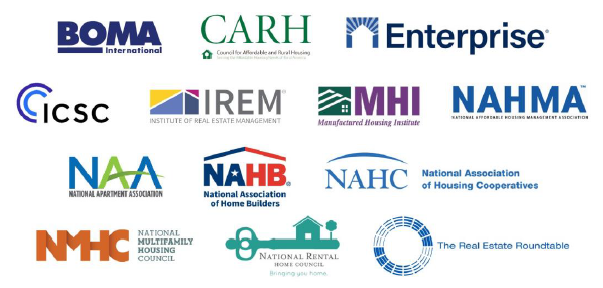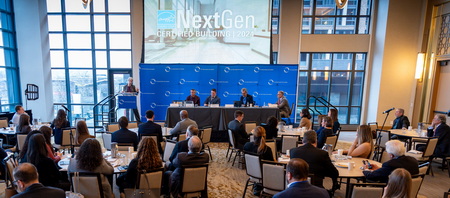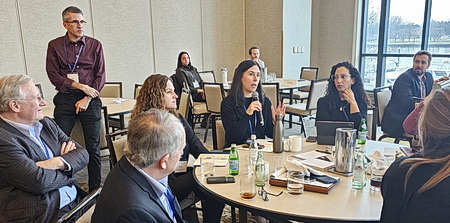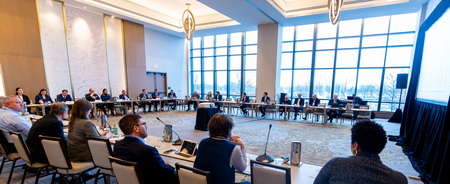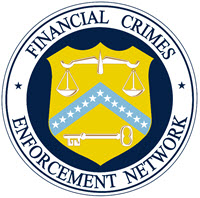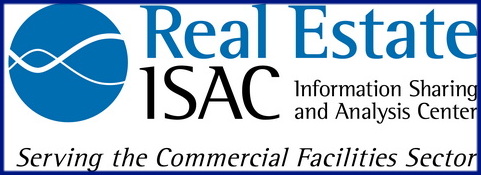
This week, The Real Estate Roundtable’s (RER) State of the Industry meeting brought together policymakers, industry leaders, and experts to discuss key policy issues shaping debates in Washington and impacting the economy and commercial real estate industry.
2025 State of the Industry Meeting

- Roundtable Chair Kathleen McCarthy (Global Co-Head, Blackstone Real Estate) opened the meeting by welcoming attendees, setting the stage for discussions on industry priorities and advocacy opportunities, and highlighting key member priorities for the year ahead.

- RER President & CEO Jeffrey DeBoer highlighted the organization’s unique strengths in policy advocacy, which is known for its trusted, fact-based, and data-driven approach. He also acknowledged members for participating in the annual policy issues survey, which revealed widespread concern about tariffs and strong support for priorities like tax reform, housing incentives, reducing regulatory barriers, energy infrastructure, insurance, and cybersecurity resiliency.
Meeting Speakers

- Geopolitical expert John Sitilides (Principal, Trilogy Advisors LLC; National Security Senior Fellow, Foreign Policy Research Institute) gave a presentation on “Washington & the World: The New Geopolitics of Great Power Competition” and discussed the current geopolitical dynamics and vulnerabilities affecting global commerce and energy.

- Rep. Darin LaHood (R-IL) (Member, House Committees on Ways and Means; and Permanent Select Committee on Intelligence) discussed the U.S.-China economic relationship, extending the Tax Cuts and Jobs Act (TCJA) tax cuts, housing incentives such as the Low-Income Housing Tax Credit (LIHTC), opportunity zones, and property conversions.

- Rep. Tom Suozzi (D-NY) (Member,House Committee on Ways and Means) stressed the need for bipartisanship to address housing shortages, restore state and local tax (SALT) deductions, advance immigration reform, and revitalize cities.
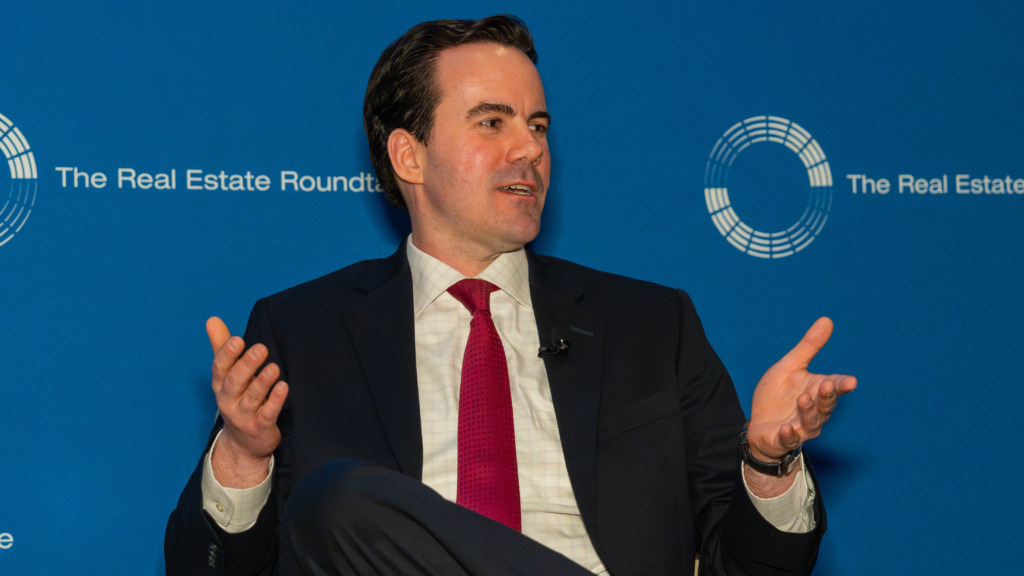
- Robert Costa (Chief Election & Campaign Correspondent, CBS News) shared his insight on the current political environment and his experiences with the past and current administrations.

- Rep. French Hill (R-AR) (Chair of the House Financial Services Committee) spoke to RER’s Joint Real Estate Capital Policy Advisory Committee (RECPAC) and Research Committee on his policy priorities for the 119th Congress.

- Rep. Mike Carey (R-OH) joined RER’s Tax Policy Advisory Committee (TPAC) to discuss expiring provisions in the TCJA, and his bipartisan property conversion legislation Revitalizing Downtowns and Main Streets Act.
Committee Meetings
Joint Real Estate Capital Policy Advisory Committee (RECPAC) and Research Committee
- During a joint meeting, Research Co-Chair Spencer Levy (Global Chief Client Officer & Senior Economic Advisor, CBRE) and Darin Mellot (CBRE) discussed the current real estate conditions and the outlook for real estate credit and capital markets. Working Group Chair Michael Lascher (Global Head of Real Estate Debt Capital Markets, Blackstone) led a discussion on office financing with David Bouton (Citibank), Michael Maturo (RXR Realty), and James Million (CBRE). Will Skinner (Blackstone Credit and Insurance) presented on the growing adoption of private credit by insurance companies and the interplay with alternative asset managers. (Agenda & Speakers)
Tax Policy Advisory Committee (TPAC)
- TPAC Chair Joshua M. Parker (Chairman & Chief Executive Officer, Ancora L&G) and TPAC Vice Chair David Friedline (Partner, Deloitte Tax LLP) led panels on the status of tax legislation in Congress and the pending expiration of the TCJA, property conversions, partnerships, pass-throughs, partnership basis-shifting rules, and SECA-limited partners tax dispute. (Agenda & Speakers)
Sustainability Policy Advisory Committee (SPAC)
- SPAC Vice Chairs Ben Myers (Vice President, Sustainability, BXP) and Katie Rothenberg (Vice President, ESG, Avalon Bay Communities, Inc.) led discussions on public-private partnership opportunities with US-DOE, utilities, refrigerant emissions, and building performance standards. (Agenda & Speakers)
Homeland Security Task Force (HSTF)
- Co-Chair Amanda S. Mason (Executive Director, Global Intelligence, Related Companies) highlighted the overall mission of the HSTF, and led a series of discussions on areas of concerns for the commercial facilities sector. Bruce Hoffman (Senior Fellow for Counterterrorism and Homeland Security, Council on Foreign Relations) provided an overview of implications of recent terrorist incidents here and abroad, and the evolving terrorism landscape. Trent Frazier (CISA) and Tobi Rosenzweig, (U.S. Department of State) discussed the current geopolitical tensions in Europe and both short-term and long-term risks. Ken Kurz (COPT Defense Properties)and Marcelle Lee (Equinix) led a panel on the evolving landscape of cyber and physical threats. Cathy Lanier (National Football League), Hon. Lucian Niemeyer (Building Cyber Security), and Thomas Warrick (The Future of DHS Project) hosted a roundtable discussion on recent terrorism incidents, and natural catastrophes.(Agenda & Speakers)
Next on RER’s FY 2025 meeting calendar is the Spring Meeting on April 7-8. The Spring Meeting is restricted to Roundtable-level members only.

